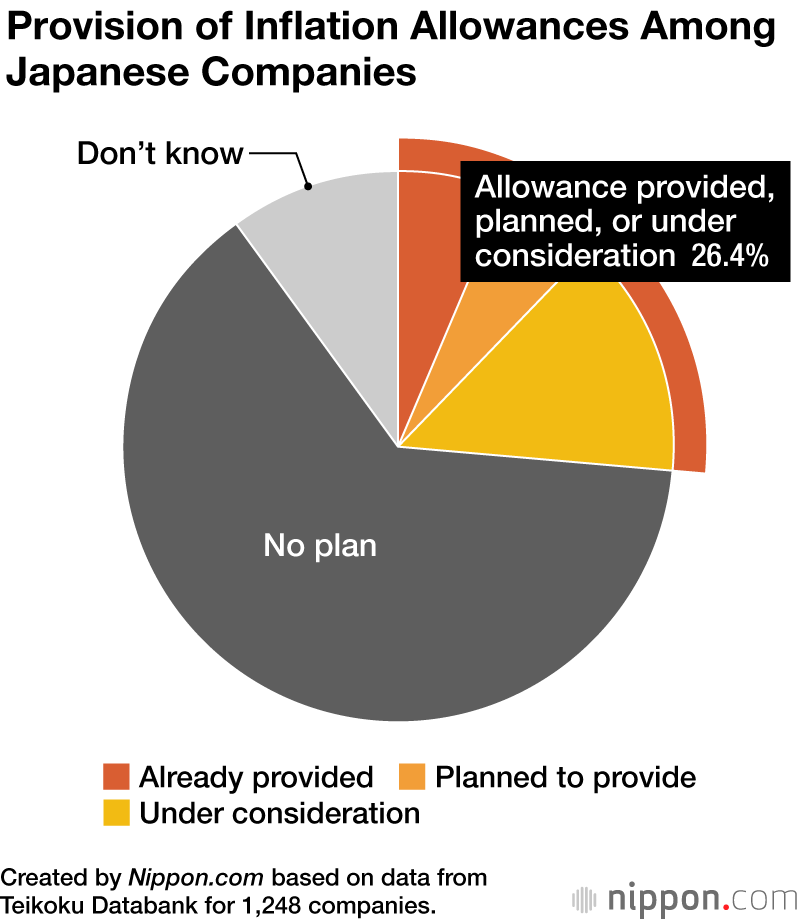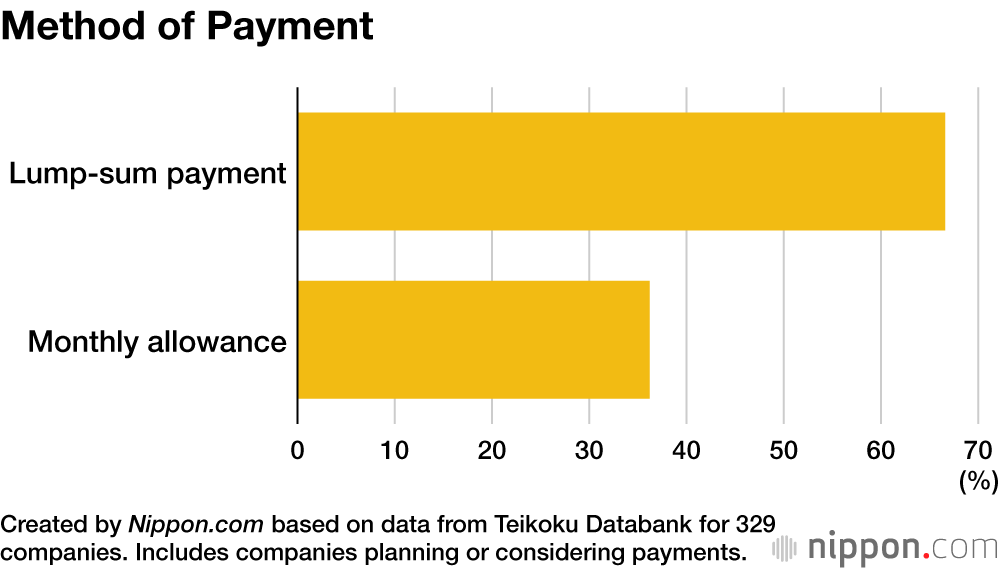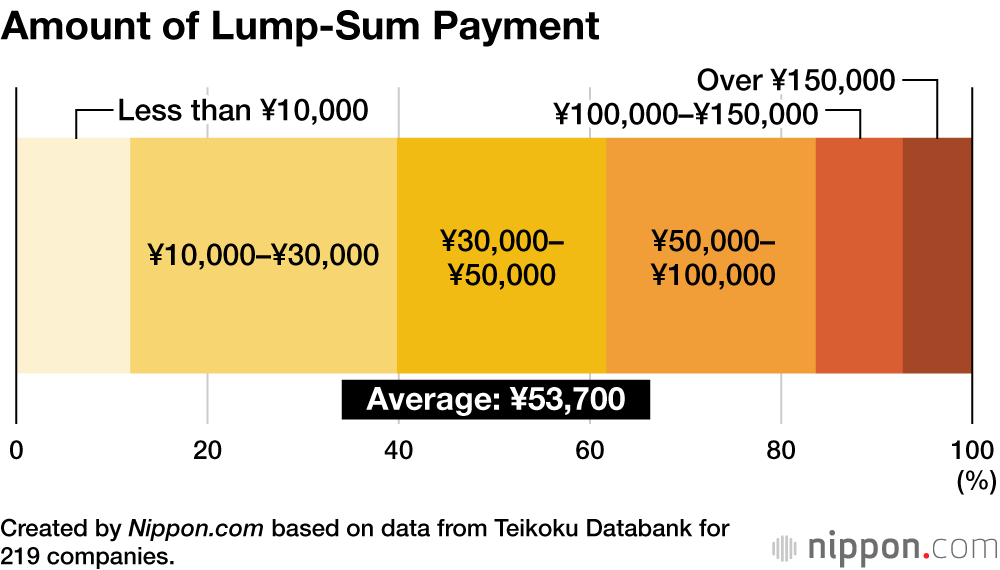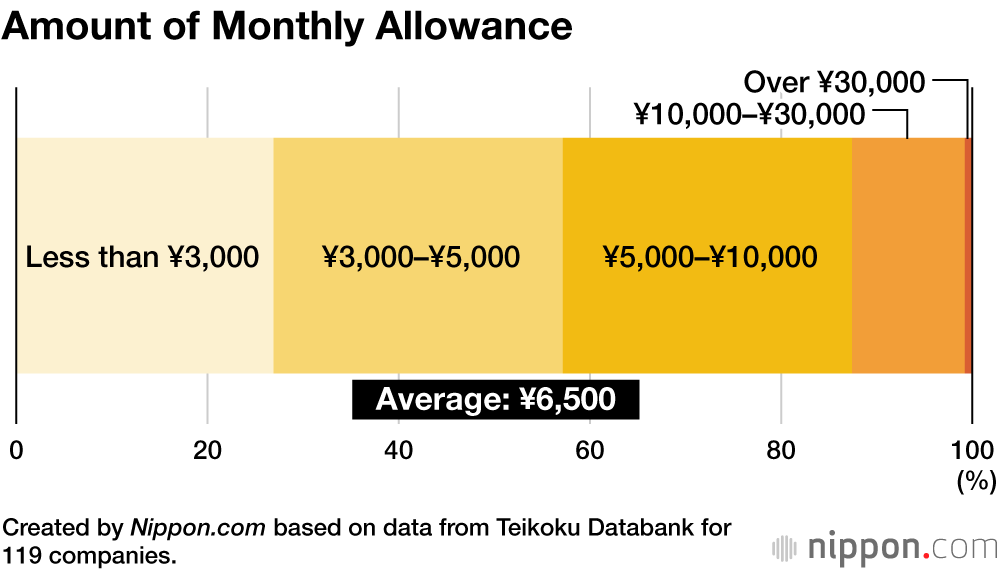
One in Four Japanese Companies Paying or Considering “Inflation Allowances”
Economy Work- English
- 日本語
- 简体字
- 繁體字
- Français
- Español
- العربية
- Русский
In mid-November, Teikoku Databank conducted a nationwide survey of companies on the provision of special inflation allowances. The survey found that 6.6% of all companies had already provided such an allowance, 5.7% had plans to do so, and 14.1% were considering one, for a total of 26.4% in total. Meanwhile, 63.7% of the respondents answered that their company has no plan to provide such an allowance.
Companies that have either provided an inflation allowance or plan to do so have done it for various stated reasons, including to “give employees some motivation amid soaring prices” (an industrial chemicals wholesaler) or to “prevent the outflow of personnel facing the problem of increased food and utility costs” (real estate agency).
As for the method of payment, 66.6% of the companies provided a lump-sum payment, while 36.2% offered monthly allowances (result exceeds 100% because multiple answers allowed).
The most common amount for a lump-sum payment, mentioned by 27.9% of respondents, was between ¥10,000 and ¥30,000, while 21.9% of the companies offered a payment of between ¥30,000 and ¥50,000 or between ¥50,000 and ¥100,000. The average amount paid was ¥53,700. One steel wholesaler that issued a one-time payment said that this was better, considering the impact that lowering a monthly allowance would have.
The average monthly allowance paid was ¥3,000 up to ¥5,000 or ¥5,000 up to ¥10,000, at 30.3% for each, followed by 26.9% of companies that paid under ¥3,000 per month. Thus, around 90% of the companies issued a monthly allowance of less than ¥10,000, while the average monthly allowance was roughly ¥6,500.
(Originally written in Japanese. Banner photo © Pixta.)



